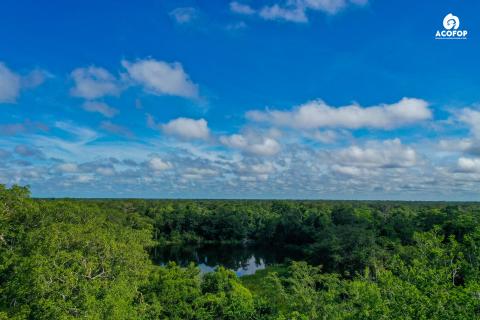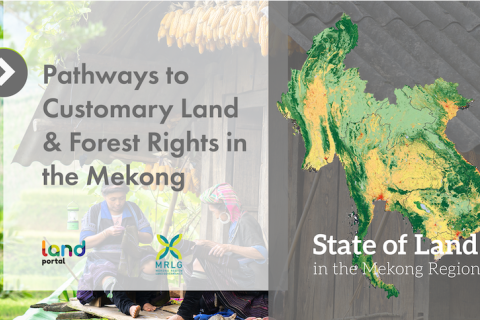The Intersection of Tenure Rights and Climate Action
On March 5, 2025, the FAO and the Global Land Alliance launched an important study titled Collective Tenure Rights and Climate Action in sub-Saharan Africa. This study consolidates extensive research on how collective land tenure arrangements impact forest conditions, biodiversity, and the livelihoods of Indigenous peoples and local communities across the
Protecting Biodiversity Hinges on Securing Indigenous and Community Land Rights
In 2022, countries reached a historic agreement to halt biodiversity loss by conserving at least 30% of land and water by 2030. This marked a critical step toward protecting the world's precious remaining species and ecosystems. But that's not all: The Global Biodiversity Framework, as it's known, also explicitly calls on countries to recognize and uphold Indigenous Peoples and local communities' rights in their conservation strategies.
Webinar Recap : Pathways to Customary Land & Forest Rights in the Mekong
Webinar Recap : Carbon markets and Indigenous lands: The importance of free, prior and informed consent
OVERVIEW
Under the umbrella of the Land Dialogues series, the third webinar of this year’s series “Carbon markets and Indigenous lands : The importance of free, prior and informed consent” took place on September 14th, 2023. The webinar drew in a little under 500 participants and featured panelists from Indigenous leaders to academics. The series is organized by a consortium of organizations, including the Land Portal Foundation, the Thomson Reuters Foundation, the Ford Foundation and the Tenure Facility.
Reflections on Monitoring, Evidence and Data: 10th Anniversary of the VGGT
Last week, I had the honour of moderating a panel on ‘Monitoring, Evidence and Data’ for Land Portal during the 10th Anniversary Event of the VGGT. The intention was to take inspiration from a recently published data story questioning the provision of data and monitoring to measure the impacts of the Voluntary Guidelines over the past 10 years. Yet the topic was already highly visible, garnering much attention during the first day of the event.
Webinar Recap: Pandemic, social unrest and war echoing in the Amazon
Governance of forests and its impact on the persistence and re-emergence of forest patches: An archetype approach
Studies in forestry have predominantly focused on the degradation of forests, with significant policy attention across the global and national levels. Despite reported increases in deforestation in tropical forests (Wimberly et al. 2022) , there is scattered evidence of forest resurgence around the world (Chazdon et al. 2020) . Yet, there are limited empirical studies to explain the governance factors influencing such forms of transition.
Indigenous peoples and local communities can save our forests: but governments must put them on the map
International Day of Forests: 21 March
A new study, published ahead of the International Day of Forests, warns that the Amazon is now nearing its tipping point; its ability to recover from disruption, such as droughts or fires, is rapidly reducing, increasing the risk of dieback of the Amazon rainforest and potentially releasing up to 90 billion tons of greenhouse gases into the atmosphere.
New Data Story: Communities, Carbon and the Climate Crisis
Indigenous Peoples and local communities have successfully stewarded biodiversity rich landscapes for generations, helping to conserve and protect forests and other critical ecosystems while pursuing their own self determined priorities and livelihood needs. However, in the absence of legally recognized rights to their lands and forests, forest communities face an increasing array of threats from growing local and global demand for land and resources.
Updated SDG tracker helps navigate the jumble of land data and information
More than a dozen land-related indicators are housed over five SDG goals, with data maintained by different custodian agencies. The Land Portal re-launched the SDG Land Tracker to help land stakeholders monitor developments and discussion.
In the Philippines, community forestry can help the climate agenda, and vice versa
In conversation with Heidi Mendoza
The Filipino government can generate new momentum and resources for its longstanding community-based forest management programme, by placing it more centrally in its climate policies. This could benefit forest-dependent communities, but only if mistakes from the past are not repeated, argues Heidi Mendoza. It requires a better understanding of the conditions and constraints for community forestry.






